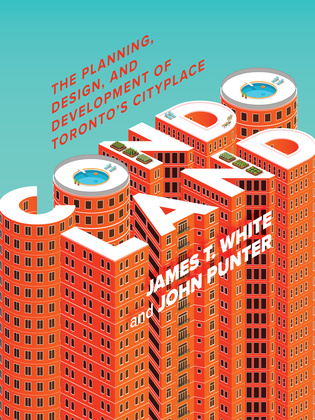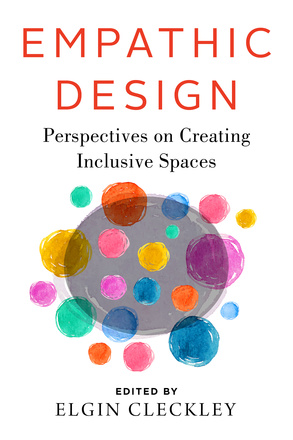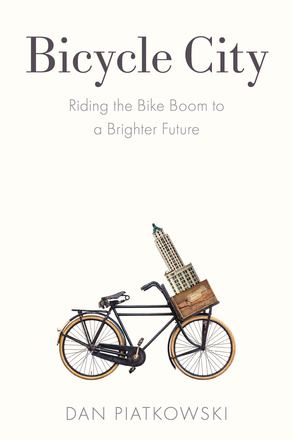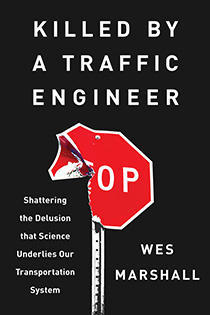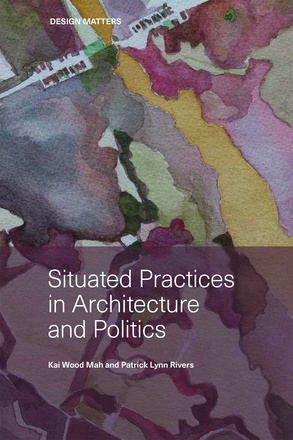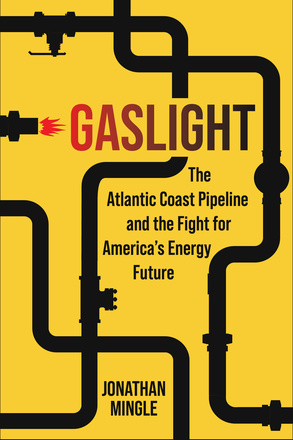
With Canadians burdened by the world’s highest household debt after decades of failed housing policy, Home Truths: Fixing Canada’s Housing Crisis shows what went wrong, and how it can be fixed.
Broken City argues that skyrocketing urban land prices drive our global housing market failure – so, how did we get here, and what can be done about it?
Nature-First Cities recognizes nature as the lead architect in the most essential of restoration projects – our cities.
In an era of frantic vertical urbanization known as “condoism,” Condoland explores the planning and design of Toronto’s CityPlace, one of North America’s largest residential development projects – and reveals what can happen when the real estate industry comes to dominate city planning.
Local Governance in Transition presents a framework for conversations around technological, ecological, and economic challenges – and encourages innovative thinking for those interested in exploring sustainable solutions.
Sites of Conscience charts the importance of public engagement with histories, memories, and lived experiences of institutions in forging new directions in social justice with and for disabled people and people experiencing mental distress, in a context where deinstitutionalization has failed to fully recognise, redress, and repair the ongoing impacts of institutions.
The first edition of Human Transit, published in 2011, has become a classic for professionals, advocates, and interested citizens. Walker has updated and expanded the book to deepen its explanations. New topics include the problem with specialization; the role of flexible or “demand response” services; how to know when to redesign your network; and responding to tech-industry claims that transit will soon be obsolete. Finally, he has also added a major new section exploring the idea of access to opportunity as a core measure of transit’s success. No other book explains the basic principles of public transit in such lively and accessible prose, all based on a respect for your right to form your own opinion. Walker’s goal is not to make you share his values, but to give you the tools to clarify and advocate for yours.
How do you experience a public space? Do you feel safe? Seen? Represented? The response to these questions may differ based on factors including your race, age, ethnicity, or gender identity. In Empathic Design, designer and architecture professor Elgin Cleckley brings together leaders and visionaries in architecture, urban design, planning, and design activism to explore what it means to design with empathy. Empathic designers work with and in the communities affected. They acknowledge the full history of a place and approach the lived experience and memories of those in the community with respect. Contributors explore broader conceptual approaches and highlight design projects including the Harriet Tubman Memorial in Newark, which replaced a long-standing statue of Christopher Columbus; and restoration of the Freedom Center in Oklahoma City, first built by civil activist Clara Luper to provide a safe place for gathering and youth education; and The Camp Barker Memorial in Washington, D.C., which commemorates a “contraband camp” used to house former slaves who had been captured by the Union Army. Empathic Design provides essential approaches and methods from multiple perspectives, meeting the needs of our time and holding space for readers to find themselves.
In Movement: How to Take Back Our Streets and Transform Our Lives, journalist Thalia Verkade and mobility expert (“the cycling professor”) Marco te Brömmelstroet take a three-year shared journey of discovery into the possibilities of our streets. They investigate and question the choices and mechanisms underpinning how these public spaces are designed and look at how they could be different. Verkade and te Brömmelstroet draw inspiration from the Netherlands and look at what other countries are doing, and could do, to diversify how they use their streets and make them safer. Making our communities safer, cleaner, and greener starts with asking these fundamental questions: who do our streets belong to, how do we want to use them, and who gets to decide? To truly transform mobility, we need to look far beyond the technical aspects and put people at the center of urban design. Movement will change the way that you view our streets.
In Bicycle City: Riding the Bike Boom to a Brighter Future cycling expert Daniel Piatkowski argues that the bicycle is the best tool that we have to improve our cities. The car-free urban future—where cities are vibrant, with access to everything we need close by—may be less bike-centric than we think. But bikes are a crucial first step to getting Americans out of cars. Piatkowski offers pragmatic lessons drawn from the latest research along with interviews, anecdotes, and case studies from around the world. Electric bikes are demonstrating the ability of bikes to replace cars in more places and for more people. Cargo bikes are replacing SUVs for families and delivery trucks for freight. At the same time, mobility startups are providing new ownership models to make these new bikes easier to use and own, ushering in a new era of pedal-powered cities.Bicycle City is about making cities better with bikes rather than for bikes.
One third of people living in the United States do not have a driver license. Because the majority of involuntary nondrivers are disabled, lower income, unhoused, formerly incarcerated, undocumented immigrants, kids, young people, and the elderly, they are largely invisible. In When Driving is Not an Option disability advocate Anna Letitia Zivarts draws from interviews with involuntary nondrivers from around the US and from her own experience, to shine a light on the number of people in the US who cannot drive and outline actions to improve our mobility systems. When the needs of involuntary nondrivers are viewed as essential to how we design our transportation systems and our communities, not only will we be able to more easily get where we need to go, but the changes will lead to healthier, climate-friendly communities for everyone.
Fixing the carnage on our roadways requires a change in mindset and a dramatic transformation of transportation. This goes for traffic engineers in particular because they are still the ones in charge of our streets. In Killed by a Traffic Engineer, civil engineering professor Wes Marshall shines a spotlight on how little science there is behind the way that our streets are engineered, which leaves safety as an afterthought. While traffic engineers are not trying to cause deliberate harm to anyone, he explains, they are guilty of creating a transportation system whose designs remain largely based on plausible, but unproven, conjecture.Killed by a Traffic Engineer is ultimately hopeful about what is possible once we shift our thinking and demand streets engineered for the safety of people, both outside and inside of cars. It will make you look at your city and streets—and traffic engineers—in a new light and inspire you to take action.
Gaslight is the story of an epic, six-year battle between one of the country’s most powerful energy companies and the everyday people who stood in the path of its massive fossil gas pipeline. On one side, an archetypal Goliath: a corporation that commands billions of dollars and unparalleled influence over state politicians and federal government agencies alike. On the other, a diverse band of Davids: lawyers and farmers, conservationists and conservatives, innkeepers and lobbyists, scientists, and nurses. Their struggle took them all the way to the Supreme Court, but their larger fight was in the court of public opinion. Would the nation swallow the industry’s narrative that gas was “a bridge fuel” to a clean, green future? Or would the public recognize it as a methane bomb, capable of not only wrecking local communities but imperiling the planet? Vivid and suspenseful, Gaslight is essential reading for anyone who wants to understand the urgent stakes of the energy choices we face today.




